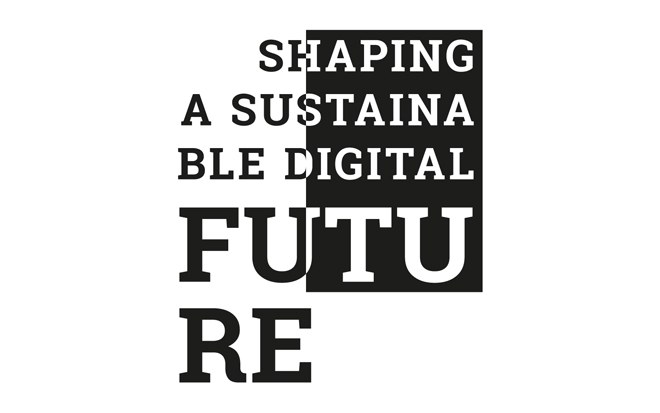Sustainability
A SUSTAINABLE DIGITAL FUTURE? LET’S SHAPE IT!

On November 20th, Fondazione Prada hosted the “Shaping a Sustainable Digital Future” Conference today as a part of a series of multi-stakeholder engagement events organized by Prada Group aiming to increase the awareness on significant societal, ecological and socio-economic changes.
“Digitalisation makes an extraordinary contribution to sustainable development – we need to take a moment to think about what that really means. That is why we are here today”.
Following an inspirational and illustrative welcome address delivered by Carlo Mazzi, Prada Chairman, the professors of Politecnico di Milano School of Management and Yale School of Management alongside business leaders and representatives of institutions as well as international organizations further elaborated how digitalization could contribute to the sustainable development, and how technology-related risks could be transformed into opportunities.
Furthermore, the event hosted Professor Nicholas Negroponte, Chairman Emeritus MIT Media Lab,
who delivered a keynote speech.
In the end, a fresh perspective on the issues was provided by the students from both Yale School of Management and Politecnico di Milano School of Management. The students also had an unique opportunity to deliver their novel contribution on stage whereby they showed how digital transformation could be used as an instrument for sustainability.
Technology: more opportunities or risks?
The 1st roundtable, opened by the speech held by Vittorio Grilli, Chairman of the Corporate & Investment Bank, EMEA at JP Morgan, explored a wide range of aspects at the interaction between human and technology while two themes standing out.
The first pertains to the effects of digitalization on the job market. Anil Menon, President of Cisco Smart+Connected Communities, pointed out the double nature of the issue:
“Up to 40% jobs are threatened by technology. The job proposition is now where the analytical skills come in to interpret the data. There are also opportunities to reskill people”
The second one uncovered the relationship between technology and humans articulated by the author Andrew Keen and Jon Iwata from the Yale School of Management. To illustrate,
“We always broke the future and then we recreated it – we have to demonstrate our agency if we are going to shape technology rather than allow technology to shape us”. – Andrew Keen
“Artificial Intelligence objectivity is a myth. These models are created by someone’s point of view but someone’s point of view is somebody else’s bias. We demand transparency of AI systems – but the day will come when people will need to know who trained and determines that system” – Jon Iwata
Beyond Digital
Central moment of the conference was the keynote speech held by Nicholas Negroponte, Chairman Emeritus, MIT Media Lab. He inspired the audience by covering the fascinating interplay of capitalism, entrepreneurship, democracy, education, culture, ‘groupthink’ and ways of thinking about technology.
“Capitalism is not democracy”
While during the first roundtable, participants questioned about risks and opportunities, Negroponte highlighted the importance of human factor in achieving significant implications to improve various sectors, including education and healthcare.
‘Scientists behind AI were not interested in machine learning, they were interested in children learning. How do children learn?’
The way humans elaborate and build upon technology to create creative yet digital solutions was one of the main takeaways of this speech.
Is Technology Killing the Human Touch?
Pursuing the path traced by the previous speakers, the second roundtable approached the theme of the Conference from a different perspective. What’s the role of technologies in the preservation of cultural identities of both individuals and communities?
Yale School of Management and Politecnico di Milano School of Management not only illustrated how technological innovations are threatening cultural know-how but they also proposed how to use AI to preserve, protect and deploy cultural heritage capital for sustainable development.
“Culture plays a key role in the sustainable development. AI can help us in this very complex society to understand how to deploy culture” – explains Viviane Yazdani, spokesperson of the student group for the project ‘Being’.
This project led to an enriching discussion among the speakers of the second roundtable that reflected the role of private and public sector in the creation of a sustainable society and on the importance of creating a community.
Andrea Illy, Chairman of illycaffè S.p.A said:
“We are transitioning from a systemically unsustainable society to an age where we have to shift the paradigm. Private companies have a big role in this. Culture is a huge asset to society and private companies have to help preserve it”
In the end, Elena Zambon, President of Zambon SpA remembered:
“You cannot predict, but you can invent the future. Innovation is nothing if it isn’t shared”.
Takeaways
After having discussed about the major changes in our societies and having analysed both technology-related risks and opportunities, the scenario taking shape was positive and promising. There is no need to be scared about technology, just be aware of its multiple nature.
At the end, Mr Mazzi, Prada Chairman, underlined that digitalisation is an opportunity for which integration across all different generations, industries and various stakeholder groups is pivotal.





